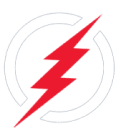What’s Included in Our Speed Optimization Support
Overview
Speed optimization is an important part of maintaining a healthy WordPress site. At BionicWP, we offer multiple layers of performance improvements, but it’s equally important to define what is covered under our support and what is not.
This article outlines what is included in our speed optimization process, what we can assist with, and which areas fall outside the scope of our responsibility.
What We Cover
We help you improve performance by addressing the most common speed bottlenecks using best practices, automation, and diagnostics. Here is what our support includes:
Core Optimization Tasks
Installation and configuration of caching solutions such as page cache, browser cache, and compression
Configuration of performance plugins like NitroPack, WP Rocket or Ultimate Cache
Enabling lazy load for images and iframes
Minification and safe combination of CSS and JavaScript files
Deferring or delaying JavaScript execution where applicable
Preloading of fonts and critical assets
Converting images to WebP format at runtime without modifying the exact files on your site.
Setting up CDN integration
Diagnostics and Recommendations
Running PageSpeed Insights and Lighthouse audits to identify speed issues
Reviewing test results to highlight specific opportunities for optimization
Pointing out bottlenecks caused by themes or plugins
Identifying blocking assets, unoptimized elements, or heavy third-party scripts
Advising your team on what changes are needed to improve scores
Infrastructure-Level Performance
Fast server response times using our optimized hosting stack
Full-page caching at the server level
Object caching where supported
Brotli or GZIP compression at the server level
Edge caching
Who Sets the Rules for Performance
Google sets the standards for web performance through its Core Web Vitals, Lighthouse scoring, and PageSpeed Insights tool. These tools define what is considered fast, moderate, or poor performance.
At BionicWP, our role is to help you understand these rules and how they apply to your site. We translate Google's technical performance metrics into specific actions you can take. We show you what your site is doing well, what areas are considered poor, and what needs to be fixed to meet Google's expectations.
We don’t control the scoring rules, but we help you align your site with them.
What We Do Not Cover
Some performance issues require changes to your site's structure, content, or custom code. These fall outside the scope of our optimization support. We will identify and highlight these issues, but you or your development team will need to take action on them.
Here is what is not included:
Rewriting or refactoring theme or plugin code
Fixing layout shifts caused by themes, embeds, or third-party content
Reducing bloated DOM structures from page builders
Modifying or removing behavior of third-party plugins
Replacing image-heavy layouts or redesigning sections
Migrating navigation menus or headers for performance
Creating custom critical CSS for complex themes
Resolving issues from outdated or poorly maintained themes or plugins
Fixing site functionality that breaks after aggressive optimizations like JS deferral
We may offer developer guidance, but we do not directly implement these changes.
Important Notes About Optimization
Optimizations are not permanent. Changes to themes, content, or plugins can reverse gains. Caches may also be cleared during updates or troubleshooting.
PageSpeed scores are dynamic. They vary based on device, location, network speed, and testing conditions.
Caching is an enhancement, not a fix. If the site’s structure is poor, caching will not make it fast. It improves performance only when the foundation is already optimized.
How We Can Help
Here is how our team can continue to assist you:
Investigate why a site is performing poorly
Recheck and retune optimization settings after site updates
Assist in setting plugin exclusions when certain features break
Compare performance before and after applying optimization
Recommend better plugins or themes where applicable
Summary
We provide a high-performance hosting platform and apply essential optimization techniques to help your site load faster and score better. However, the underlying structure and content of the site play a critical role in long-term performance.
Many of the rules are defined by Google. Our job is to help you understand what they mean for your site and how to reach the best possible results within those standards.
We are here to support you every step of the way and help ensure your site is as optimized as it can be on our platform.
